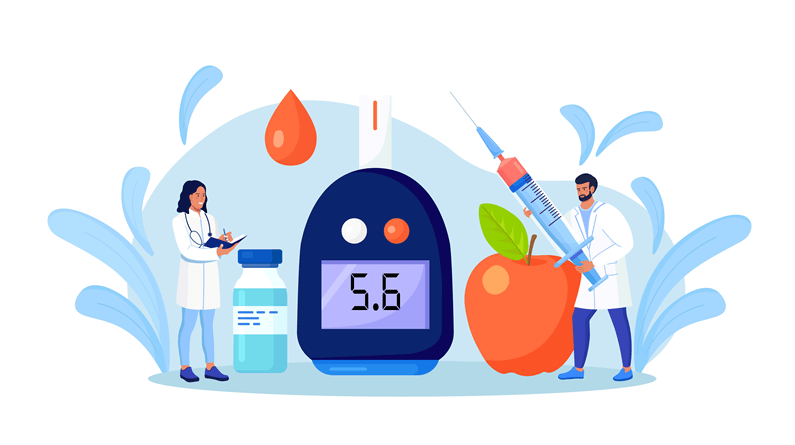Managing Diabetes: Types of Medications
Diabetes is a condition that affects the way our bodies process sugar. While lifestyle changes such as weight loss, healthy eating, and physical activity are crucial in managing diabetes, medications also play a vital role in controlling blood sugar levels. In this article, we’ll explore the different types of medications used to manage diabetes.
Types of Diabetes Medications
There are several types of medications used to manage diabetes, each working in a unique way to control blood sugar levels. Here are some of the most common types:
1. Metformin: This is usually the first medication prescribed for type 2 diabetes. It works by blocking the production of glucose in the liver and improving the body’s sensitivity to insulin.
2. Sulfonylurea: This medication stimulates the release of insulin from the pancreas. However, it can cause weight gain as a side effect.
3. Thiazolidinediones: This medication improves the body’s ability to use insulin more effectively. However, it can increase the risk of heart failure, anemia, and weight gain.
4. DPP-4 inhibitors: This medication helps reduce blood sugar levels by blocking the action of an enzyme called DPP-4. However, it can cause joint pain and pancreas inflammation as side effects.
5. GLP-1 receptor agonists: This medication slows down digestion and reduces blood sugar levels. However, it can cause nausea, weight loss, and increased risk of pancreatitis as side effects.
6. SGLT2 inhibitors: This medication prevents the reabsorption of sugar in the kidneys, allowing it to be excreted in urine. However, it can increase the risk of vaginal yeast infections, urinary tract infections, low blood pressure, heart attack, and stroke.
7. Insulin: Insulin injection is a common treatment for diabetes. It’s available in different types, varying in terms of how long they work after injection.
8. Meglitinides: This medication stimulates the cells of the pancreas to secrete more insulin. However, it can cause low blood sugar levels as a side effect.
9. Bile Acid Sequestrants: This medication controls both blood sugar levels and cholesterol levels. However, it can cause flatulence and constipation as side effects.
10. Alpha-glucosidase inhibitors: This medication lowers blood sugar levels by blocking the breakdown of starch and delaying the breakdown of table sugar. However, it can cause gas and diarrhea as side effects.
Consulting a Doctor
It’s essential to consult a doctor to determine the best course of treatment for diabetes. They will consider individual differences in sugar breakdown, sugar absorption, and insulin action to prescribe the most effective medication.
References:
https://www.mayoclinic.org/diseases-conditions/type-2-diabetes/diagnosis-treatment/drc-20351199
https://www.drugs.com/condition/diabetes-mellitus-type-ii.html
https://www.niddk.nih.gov/health-information/diabetes/overview/insulin-medicines-treatments
https://www.webmd.com/diabetes/diabetes-medications
https://www.diabetes.org/diabetes/medication-management/oral-medication/what-are-my-options

